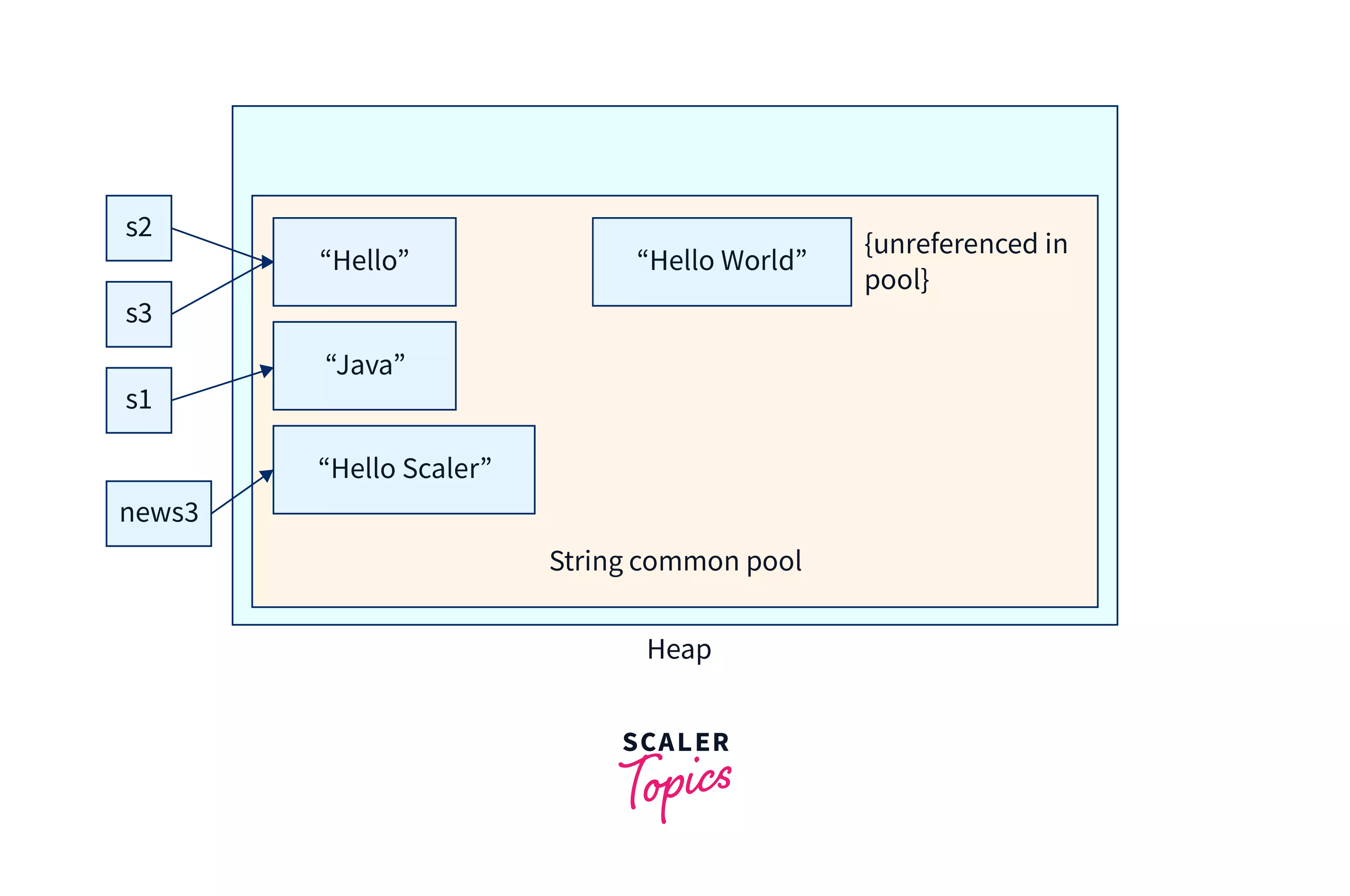Why Are Strings Immutable in Java? Understanding the Core Concepts
Why Are Strings Immutable in Java? Understanding the Core Concepts
Blog Article
What Is Immutable Strings and How It Works
In the world of programs, recognizing the idea of unalterable strings is extremely important for developing durable and protected applications. Unalterable strings refer to strings that can not be changed after they are produced, guaranteeing information honesty and predictability within the code.
The Basics of Unalterable Strings
Immutable strings, as a fundamental concept in programming, are personality series that can not be changed as soon as they are developed. This suggests that once a string is assigned a value, that value can not be altered. In languages like Python and Java, strings are unalterable objects, causing different effects in terms of memory management and information integrity.
One of the crucial advantages of immutable strings is that they offer a feeling of safety and security in data control. Considering that the web content of an unalterable string can not be modified, it ensures that the initial information continues to be undamaged, lowering the risk of unintentional modifications throughout program execution (Why are strings immutable in Java?). This building likewise simplifies debugging procedures, as developers can rely on that as soon as a string is specified, its worth will not be inadvertently altered
In addition, unalterable strings assist in efficient memory usage. When a new string is created based upon an existing one, instead than modifying the original string, the brand-new worth is saved independently. This technique enhances efficiency by minimizing memory fragmentation and simplifying memory appropriation procedures. Generally, recognizing the essentials of immutable strings is vital for understanding shows concepts and maximizing code performance.
Benefits of Immutable Strings
Building upon the protection and effectiveness benefits of unalterable strings, their benefits extend to enhancing code integrity and streamlining simultaneous programs tasks. By being immutable, strings can not be changed after development, which gets rid of the danger of unintentional adjustments in the data they save. This inherent immutability makes sure that once a string is produced, its worth stays consistent throughout the program's implementation, reducing the opportunities of insects triggered by unanticipated modifications.
Furthermore, unalterable strings contribute to code reliability by making it much easier to reason concerning the state of a program. Because strings can not be altered, developers can trust that a string will certainly always hold the exact same value, streamlining debugging and upkeep efforts. This predictability leads to much more dependable and secure codebases.

Implementation in Programs Languages
Within various shows languages, the consolidation of unalterable strings is a basic facet that influences exactly how information is taken care of and controlled within code structures. The execution of immutable strings differs throughout different programs languages, with each language offering its own systems to sustain this principle.
On the other hand, languages like C and C++ do not have integrated assistance for unalterable strings. Designers in these languages have to by hand apply immutability by implementing regulations within their code to stop straight adjustments to string things.
Finest Practices for Collaborating With Unalterable Strings
When managing unalterable strings in programs languages like Java and Python, adhering to finest practices makes certain effective and protected data adjustment. Among the essential ideal methods is to use StringBuilder or StringBuffer instead of straight adjusting strings, specifically when taking care of considerable concatenation operations. These classes give mutable options for string manipulation, helping to prevent unneeded memory appropriations and enhancing efficiency.
Furthermore, when working with delicate information such as passwords or API secrets, it is essential to stay clear of saving them as ordinary message in immutable strings. Making use of protected storage space mechanisms like char selections or specialized libraries for taking care of sensitive information helps alleviate protection risks connected with unalterable strings.
Real-world Applications and Examples
Exploring practical implementations of immutable strings in numerous sectors discloses their substantial effect on data honesty and system dependability. In the healthcare sector, unalterable strings play an important function in making certain the safety and security and discretion of individual data. By preventing unapproved modifications to delicate her response information such as clinical records and prescriptions, unalterable strings assist maintain compliance with stringent privacy policies like HIPAA.
Banks likewise take advantage of the immutable nature of strings to improve the protection of customer information and transaction records. Unalterable strings help protect against scams and unauthorized alterations to financial information, offering a robust defense versus cyber hazards and making sure the trust and self-confidence of customers.

Final Thought
Finest practices for functioning with unalterable strings include avoiding direct alterations and using approaches that return new string items. Real-world applications of immutable strings include information visit this web-site encryption, caching, and string control jobs.
Unalterable strings refer to strings that can not be changed after they are produced, making sure data integrity and predictability within the code. When a new string is produced based on an existing one, rather than changing the initial string, the brand-new value is saved separately.In languages like Java and Python, strings are unalterable by default, meaning that once a string item is developed, its value can not be altered - Why are strings immutable in Java?. view website Ideal techniques for functioning with immutable strings consist of avoiding direct modifications and using approaches that return brand-new string things. Real-world applications of unalterable strings include information encryption, caching, and string control tasks
Report this page